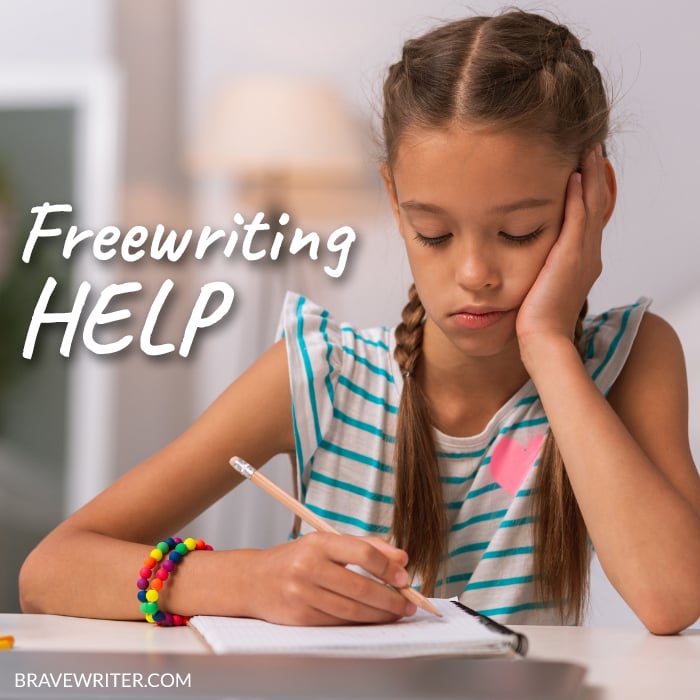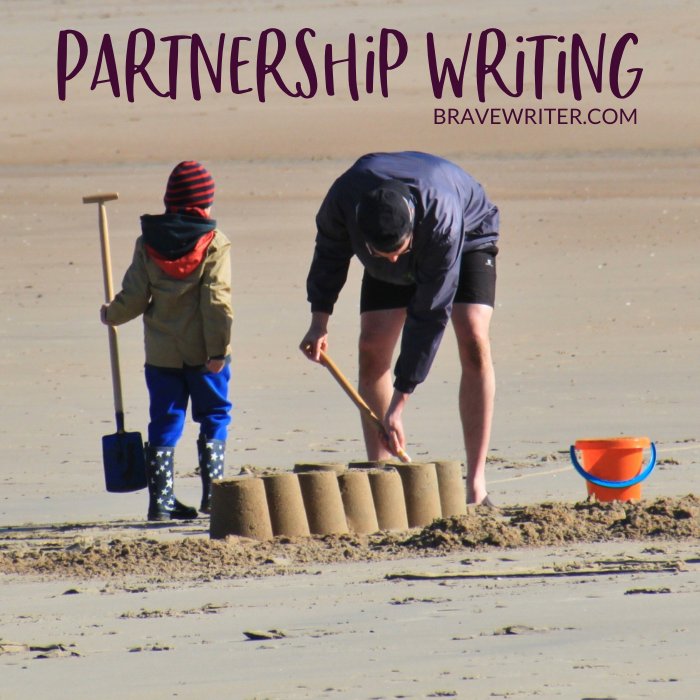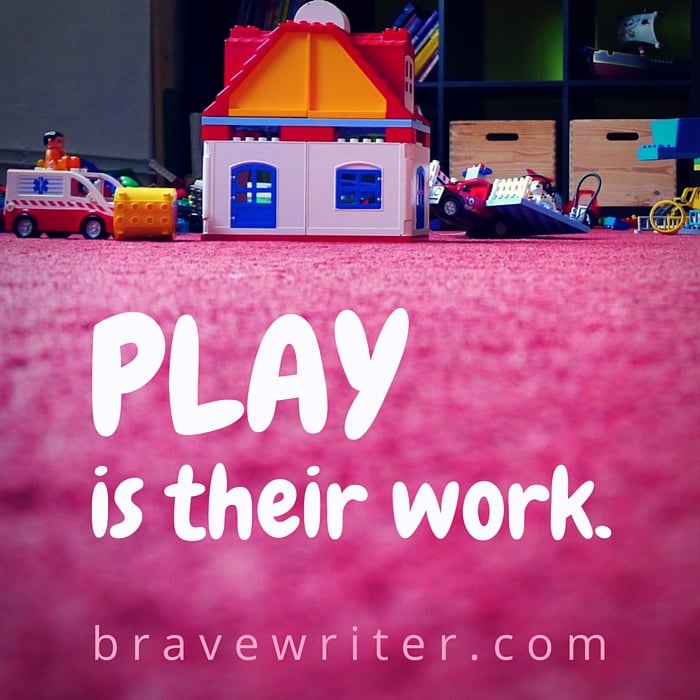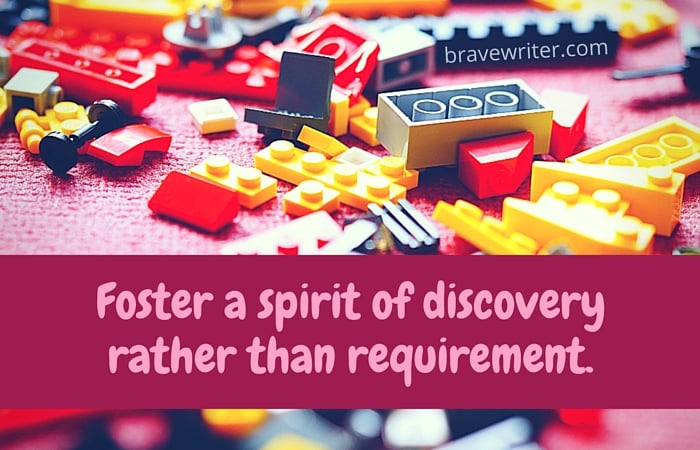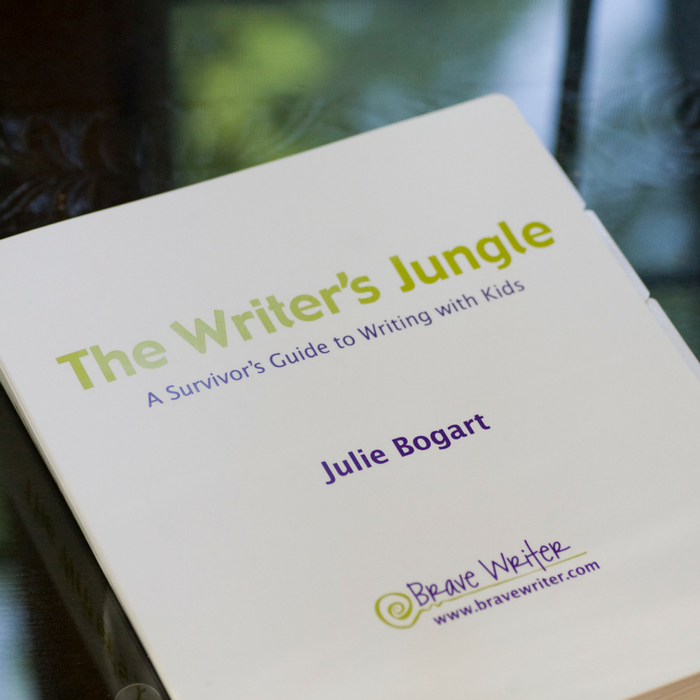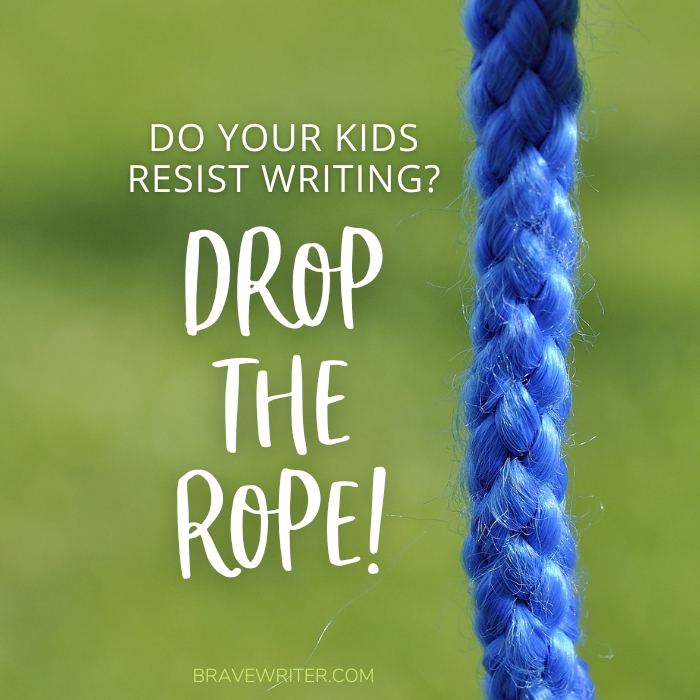
Do your kids offer big resistance to handwriting, freewriting, or copywork? What do you do when your assurances that “This will be fun” are met with suspicion? Drop the rope! Here’s how:
Stop asking for writing of any kind
Use writing around them—catch them in the act of thinking (when they aren’t expecting it) and jot down what they say to you (when they are really excited about what they are saying, not when you ask them to tell you something). It will be inconvenient. Just know that. Grab a scratch sheet of paper and jot it down. If met with suspicion, say, “No worries. I just want to save this to share with Dad later—it’s so good!”
Then do just that—share it with Dad at dinner, say, and do it in front of them.
Talk with them about their resistance
What’s it about? Get curious in an interested way (not a “once I figure it out, I can get you to write” way). Let them know you are interested in whatever the block is. Then when you do know (if it’s boring or their hand hurts or they think they have nothing to say or copywork is not interesting), you can start there.
Ask for their input
One suggestion from Charlotte Mason is to let students determine how many words (or letters!) they can attempt with full concentration and the habit of excellence. Then that’s all they have to do for that day. They get to say: “My attention is flagging” or “I lost interest” and stop right there. Tell them that if all they can sustain is a single well drawn letter, that will be enough for you. Then the next day they pick up where they left off. They may find that they will naturally increase when they are in charge of how much they write. The key, though, is to remind them of the importance of doing their prettiest work for that letter or word.
Get creative
You might try doing your own copywork at the same time so that it is a group experience. Put on some wordless music.
Finally, if the passages are boring to them, you might look for jokes or puns where they get the next word each day without seeing the whole at once.


